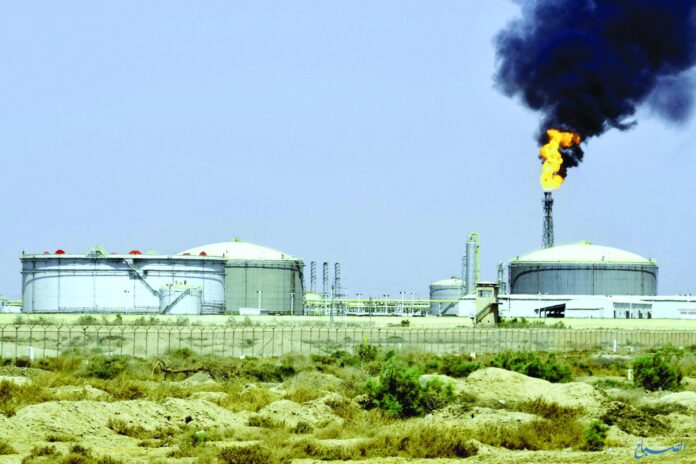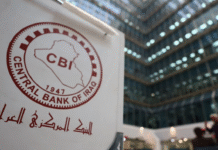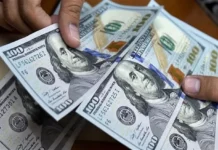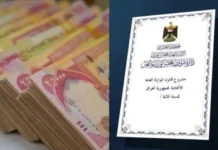The Iraqi Ministry of Oil reports that Iraq has 132 trillion standard cubic feet of gas reserves, ranking it fifth in the Arab world and tenth in the world overall for gas reserves.
Ali Jassim, Director of the Petroleum Research and Development Center, emphasized the significance of natural gas in any country, given its multiple uses as a source of thermal, mechanical, and electrical energy across various sectors. Natural gas is considered the cleanest and least polluting fuel for the environment, making it an excellent option. It is a raw material for petrochemical industries and also helps in a quarter of the energy growth.
consumed in the world.”
Gas production began simultaneously with oil production in Iraq. Most of the gas produced is associated with crude oil, which constitutes approximately 75% of the total extraction. The remaining 25% of the extracted gas is free gas. This indicates the potential for Iraq to become one of the world’s gas suppliers if its reserves are properly invested. However, natural gas did not receive sufficient investment attention in the previous period. Therefore, the current well-thought-out strategic plans and timetables for this important file are being implemented to ensure that Iraq’s gas reserves are utilized to their full potential.
During a recent statement, he emphasized that investing in gas can significantly enhance the production of electric energy while also reducing harmful emissions. He also pointed out that Iraq has committed to financing major projects in partnership with Basra Gas Company, as well as ongoing projects with other operating companies, for their oil fields within the licensing rounds.
Jassim emphasized the challenges faced by the oil industry in the current times of instability and uncertainty, especially when it comes to investing in clean energy. The world is facing a major challenge in balancing energy security and eliminating energy poverty while keeping up with the growing global demand for energy. This challenge is particularly significant in the aftermath of the Covid-19 pandemic, the war in Ukraine, and the need for countries to meet their commitments to limit climate change and reduce emissions. All of these factors require the leaders and decision-makers in the oil industry to take steps towards addressing the root causes of gas combustion and to achieve a zero-emissions target by 2030. Iraq, in particular, ranks fourth in the world in terms of gas combustion, with an annual quantity of 14 billion cubic meters due to delayed investment plans and insufficient funds.





